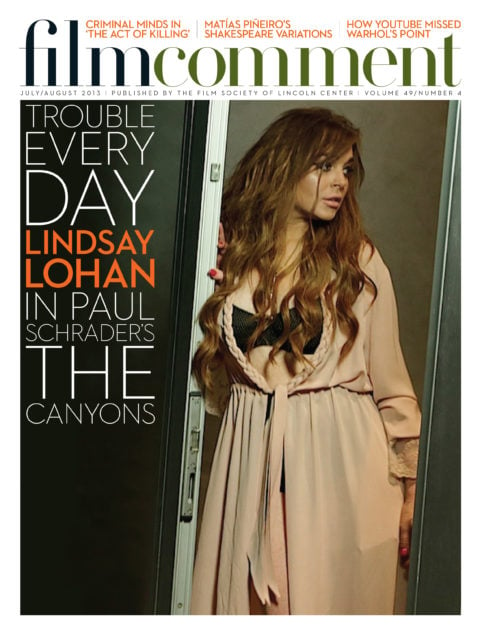
In Peeping Tom, Michael Powell’s 1959 study in scopophilia, the director incorporated a critique of pornography’s secretive production and dissemination. The serial-killer protagonist takes sleazy glamour photos in a room above a news-agent’s shop in Soho, London’s red-light district. He’s listening in when a fluttery old gent buys an album of “views” that the proprietor keeps concealed under the counter. Notwithstanding Miles Malleson’s comic turn as the customer, the scene radiates a very English furtiveness. It was echoed in John Schlesinger’s A Kind of Loving in 1962 when typist June Ritchie is shocked to find a tawdry “girlie” magazine in boyfriend Alan Bates’s inside jacket pocket.
The man who defused this atmosphere of shame was Paul Raymond, the subject of Michael Winterbottom’s biopic. Raymond fought the censorship brigade to line his pockets, not from a sense of social outrage. A onetime black marketeer and showbiz mind-reader turned Soho strip-club owner and self-styled erotic theater impresario, he began publishing the softcore pornographic magazine Men Only in 1971. Interspersing color photo spreads of naked or lingerie-bedecked models with features geared to the alpha-male lifestyle, it was sold in newsagents all over Britain. This and Raymond’s other adult titles became known as “top shelf” magazines—the euphemism denoting where they had to be placed so that kids couldn’t reach them. His publishing empire and extensive Soho property investments made him Britain’s wealthiest man.
Raymond’s commodification of female flesh is counterpointed in The Look of Love with his fraught relationships with three-dimensional women: his choreographer wife Jean (Anna Friel); his mistress, Fiona Richmond (Tamsin Egerton), star of Raymond’s shows and Men Only’s raunchy columnist; and his daughter by Jean, Debbie (Imogen Poots, giving the film’s stand-out performance), a fragile aspiring singer. Dumped for Fiona after tolerating Raymond’s many affairs, Jean makes a sad attempt to reclaim her sexual viability. Fiona opts for “a normal life.” Debbie is trapped. The connoisseur of women is not incapable of loving, but the film implicates him as a terrible father who overindulged Debbie while neglecting his two sons. Psychologically thin, Matt Greenhalgh’s script should have drawn on Raymond’s abandonment by his own father when he was five.

A pop-cultural analogue to Winterbottom’s Tony Wilson biopic 24 Hour Party People (02), The Look of Love was brought to the director by Coogan—and one can see why. Raymond’s public persona, characterized by his deliberate speech pattern (he used to stutter), his nouveau riche pompousness, and his hypocritical need to coat his sexually exploitative trade with a veneer of respectability make him perfect for the star’s trademark arch satire. Oozing blandness, Raymond boasts about his rags-to-riches success, spouts platitudes, name-drops, and does appalling movie-star impersonations. Coogan’s own impersonation is precise, but the melancholy that finally engulfs Raymond is beyond him.
Although Raymond addresses the camera at the start, the film doesn’t replicate the meta-movie techniques of 24 Hour Party People and Tristram Shandy: A Cock and Bull Story (05), though his debauches doubtlessly appealed to the self-dramatizing ironist in Coogan. DP Hubert Taczanowski shoots the Fifties sequences in period-friendly black and white. One quickly cut montage of an explicit photo shoot conveys the rapidity with which Raymond democratized porn; another, showing the remote-controlled panels and gizmos in Raymond’s swank penthouse, emphasizes his materialism. Like the soundtrack’s faux-sensual strip-club muzak, Winterbottom’s use of style has a calculated hollowness.
Floating around this sybaritic demi-monde is the vicar Edwyn Young, the chaplain of the Raymond Revuebar, who is unfortunately sullied as a lecher by David Walliams’s performance. Instead of ogling the girls he could have been asked to encapsulate the movie’s theme by citing Matthew 16:26: “For what is a man profited, if he shall gain the whole world, and lose his own soul?”








